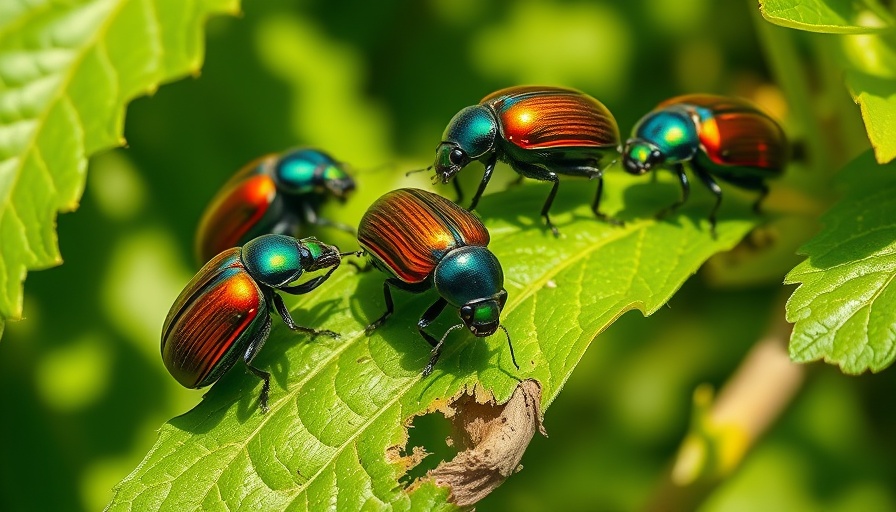
Understanding Common Garden Pests: A Comprehensive Guide
A garden is often a cherished space for homeowners, a reflection of personal expression and a source of fresh produce. However, maintaining this oasis can become challenging, especially when it comes to managing pests. In this article, we’ll explore the most common pests found in gardens, their impact, and effective strategies for control.
The Fire Ant Challenge: More Than Just a Nuisance
Fire ants are notorious for their painful bites, which can be quite harmful to pets and children alike. While they are not as detrimental to plants as other pests, their mounding behavior can wreak havoc on lawns, making them a significant nuisance for gardeners. Implementing responses such as baiting or professional pest control can effectively manage fire ant populations, allowing homeowners to regain peace in their outdoor spaces.
Birds: Unwelcome Garden Guests?
Although birds are not pests in the traditional sense, they can pose a significant threat to young plants and seeds. Various methods can be used to deter birds, including protective nets that keep them at bay without harming them. DIY scarecrows made from recycled materials can also be effective while adding a touch of whimsy to your garden.
Identifying the Southern Green Shield Bug
Colorful yet troublesome, the Southern green shield bug can be a common sight in many gardens. This bug secretes a foul-smelling liquid when threatened, which may deter some but can damage crops if left unchecked. Regular monitoring and the use of natural insecticides can help manage their presence without resorting to harsh chemicals.
Creating a Sustainable Garden Environment
In urban gardening, sustainability is key. Engaging in practices such as companion planting can not only attract beneficial insects, like ladybugs, but can also help control pest populations. For example, planting marigolds can discourage nematodes and aphids, two common garden pests.
Future Trends in Pest Control: Embracing Technology
As technology progresses, the methods for pest control become more sophisticated. The rise of urban farming and community gardens is prompting innovative strategies, including hydroponics, which minimizes pest encounters by reducing soil-based pests while maximizing space. Additionally, vertical farming can lessen the necessity for chemical interventions.
Pest Management Strategies: From the Ground Up
Understanding how to effectively manage pests requires a multifaceted approach. Integrating biological controls with organic methods helps to maintain a balanced ecosystem within your garden. Introduce predatory insects or create homemade repellents using natural ingredients like garlic or neem oil to deter pests while promoting plant health.
Final Thoughts: Your Garden, Your Sanctuary
Managing pests is a crucial aspect of gardening that can be achieved through informed decisions and sustainable practices. As you cultivate your green space, remember that knowledge is power. Stay proactive, and embrace strategies that benefit both your garden and the environment.
If you’re ready to delve deeper into urban gardening or explore sustainable agriculture methods, we encourage you to continue seeking knowledge and connecting with others in the gardening community. Your garden can become a sanctuary, not just for you but for the ecosystem around you!
 Add Row
Add Row  Add
Add 




 Add Row
Add Row  Add
Add 

Write A Comment